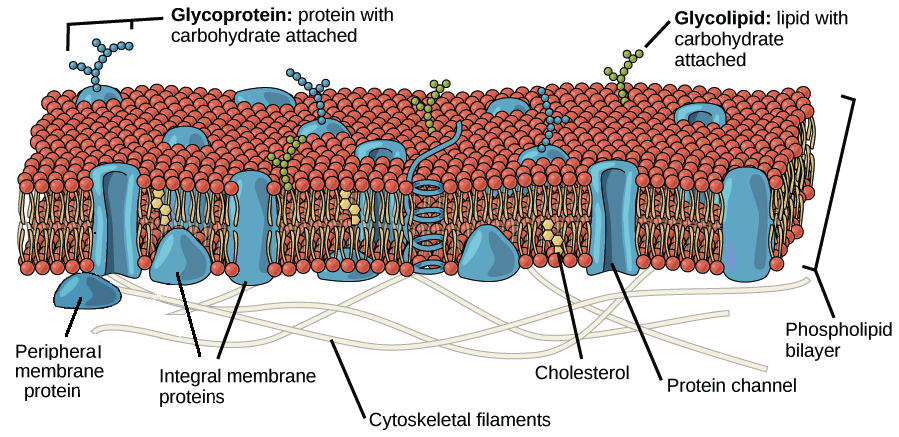
noun
- Anatomy. a thin, pliable sheet or layer of animal or vegetable tissue, serving to line an organ, connect parts, etc.
- Cell Biology. the thin, limiting covering of a cell or cell part.
noun
- any thin pliable sheet of material
- a pliable sheetlike usually fibrous tissue that covers, lines, or connects plant and animal organs or cells
- biology a double layer of lipid, containing some proteins, that surrounds biological cells and some of their internal structures
- physics a two-dimensional entity postulated as a fundamental constituent of matter in superstring theories of particle physics
- a skin of parchment forming part of a roll
n.early 15c., “thin layer of skin or tissue,” a term in anatomy, from Latin membrana “a skin, membrane; parchment (skin prepared for writing),” from membrum “limb, member of the body” (see member). The etymological sense is “that which covers the members of the body.” n.
- A thin pliable layer of tissue covering surfaces, enveloping a part, lining a cavity, or separating or connecting structures or organs.
- Cell membrane.
- A thin sheet of natural or synthetic material that is permeable to substances in solution.
- A thin, flexible layer of tissue that covers, lines, separates, or connects cells or parts of an organism. Membranes are usually made of layers of phospholipids containing suspended protein molecules and are permeable to water and fat-soluble substances.
- See cell membrane.
- Chemistry A thin sheet of natural or synthetic material that is permeable to substances in solution.
 Liberal Dictionary English Dictionary
Liberal Dictionary English Dictionary